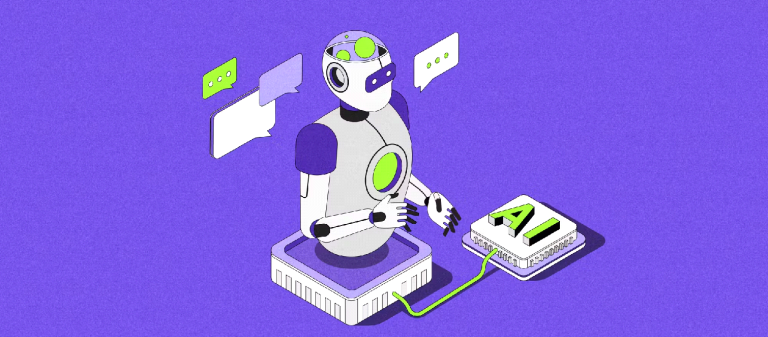Artificial Intelligence (AI) is no longer a distant dream or futuristic concept; it’s a powerful force reshaping industries today. At the heart of this transformation is the rise of AI agents — software entities designed to autonomously perform tasks, make decisions, and interact with data in meaningful ways. While AI has broad applications, the evolution of Vertical AI Agents is particularly noteworthy, offering tailor-made solutions for specific industries.
As AI systems grow more intelligent and context-aware, businesses are quickly adopting specialized agents to optimize processes, reduce costs, and enhance decision-making. This article explores how AI agents are being deployed across various sectors and what this means for the future of work.
What Are AI Agents?
AI agents are autonomous software programs that perceive their environment, make decisions, and take actions to achieve specific goals. These agents can range from simple rule-based systems to advanced machine learning models capable of self-improvement and reasoning.
They differ from traditional software in that they are not programmed for fixed tasks. Instead, AI agents are dynamic, adaptable, and often capable of learning from new data. They interact with users, systems, and databases, serving as intermediaries that can interpret, process, and act upon complex information.
Why Vertical AI Matters
General-purpose AI is powerful, but it often lacks the specificity needed to address challenges unique to different industries. Vertical AI, on the other hand, refers to solutions tailored for niche domains like healthcare, finance, manufacturing, or legal services.
Vertical AI agents are purpose-built to understand the intricacies of a particular industry — its workflows, regulations, and terminology. This deep contextual understanding enables them to provide more accurate insights, better automation, and higher value to end-users.
Key Industries Adopting Vertical AI Agents
Healthcare
In healthcare, Vertical AI Agents are transforming diagnostics, patient monitoring, and administrative processes. For instance, AI agents can help doctors analyze medical imaging, flag potential anomalies, or predict patient outcomes based on historical data. These agents also streamline back-office functions such as billing, insurance claims, and compliance tracking.
Finance
The financial sector has long relied on automation, but AI agents take it a step further by offering real-time fraud detection, portfolio optimization, and regulatory compliance monitoring. AI agents can scan thousands of transactions in seconds, detect suspicious patterns, and initiate alerts or preventive actions — all without human intervention.
Manufacturing
Smart factories are powered by AI agents that monitor machine health, predict maintenance needs, and optimize production schedules. These agents also manage inventory in real-time and provide insights into supply chain dynamics, reducing downtime and boosting efficiency.
Retail
Retailers use AI agents to manage personalized recommendations, dynamic pricing, and customer service. From chatbots answering queries to AI agents analyzing purchase behaviors, the retail experience has become more customer-centric and data-driven.
Legal and Compliance
In the legal field, AI agents assist in document review, contract analysis, and case prediction. They sift through massive volumes of legal texts to identify relevant information, reducing manual labor and speeding up case preparation.
The Benefits of Using AI Agents
1. Efficiency and Speed
AI agents significantly reduce the time required for routine and complex tasks. Whether it’s scanning documents, processing transactions, or generating reports, these agents work tirelessly and at speeds unmatched by humans.
2. Cost Reduction
Automation through AI agents minimizes the need for extensive human labor, helping companies save on operational costs. They can also prevent costly errors through real-time monitoring and decision-making.
3. Enhanced Accuracy
AI agents are less prone to error than their human counterparts. With machine learning capabilities, they can continually refine their performance, leading to more precise outcomes over time.
4. Scalability
Businesses can deploy multiple agents across various departments or geographical locations without significantly increasing overhead. This makes AI agents ideal for scaling operations quickly and efficiently.
5. Customization
With Vertical AI Agents, companies get solutions that understand their domain-specific needs. Customizable workflows and industry-centric insights make these tools indispensable for achieving business goals.
Challenges and Considerations
While the advantages are clear, implementing AI agents isn’t without challenges. Organizations must address:
- Data Privacy: Ensuring that AI agents comply with regulations like GDPR or HIPAA is critical.
- Integration: Seamless integration with legacy systems remains a technical hurdle for many companies.
- Training and Maintenance: AI agents require ongoing training and maintenance to remain effective and up-to-date.
- User Trust: Gaining user trust in AI decisions, particularly in sensitive areas like healthcare or finance, is essential.
The Future of AI Agents
The next frontier for AI agents involves even greater autonomy, emotional intelligence, and collaboration. Multi-agent systems, where multiple AI entities interact and cooperate, are being tested to solve complex problems like urban planning or disaster response.
Moreover, as natural language processing (NLP) continues to improve, AI agents will become even more adept at understanding and conversing in human language. This will open new doors for virtual assistants, customer support agents, and collaborative tools in the workplace.
Soon, we might see AI agents not just as tools, but as colleagues — working alongside us, learning with us, and even mentoring us in certain domains.
Getting Started with AI Agents
For businesses looking to explore this technology, the first step is identifying which processes can benefit most from automation and data intelligence. Partnering with experienced AI providers can help assess current systems, determine feasibility, and design effective deployment strategies.
Platforms like ZBrain offer a glimpse into how customizable and powerful Vertical AI Agents can be when aligned with your business needs. Leveraging these tailored tools can be a game-changer in today’s hyper-competitive, data-driven environment.
Conclusion
AI agents are rapidly evolving from niche tools to essential business enablers. With the advent of Vertical AI, their relevance and impact are becoming even more pronounced across industries. Whether it’s improving patient outcomes in healthcare or enhancing efficiency in manufacturing, the potential applications are vast and transformative.
By embracing these intelligent systems, businesses not only gain a competitive edge but also pave the way for a smarter, more efficient, and more innovative future.
READ ALSO: About OPPO: Innovation, Integrity, and India’s Evolving Tech Landscape

